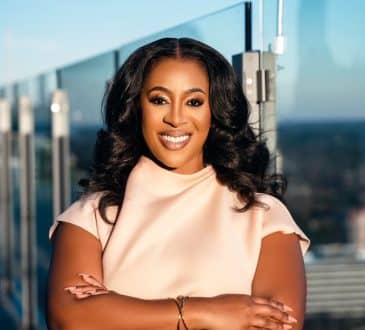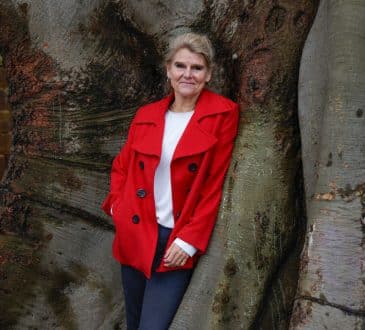Do You Have A “SAFE” Culture?

I have never met a CEO who did not want to build a greater culture of trust in their organization. Likewise, most CEOs have tried several different training programs to try and reach this goal, many of which started off with great enthusiasm and focus. However, in the end, the vast majority fail. Why? According to Forbes magazine’s September 15, 2014 article, “Why Most Company Strategic Plans Fail,” one of the biggest reasons these goals fail is because they are just too complicated.
For any program to be a success, it is critical that its concepts are simple. The simpler the better. Otherwise, how will you effectively communicate it to everyone across your entire organization? It is a lot like playing telephone. If you whisper something into one person’s ear, who then whispers it into the next person’s ear and so on, the message will get lost by the time it reaches the third or fourth person unless the message is sickeningly simple. Remember: Simple is brilliant.
So, how should you define your workplace culture?
Is it “SAFE”?
That is it. Simple.
In today’s world, it is not enough to become more and more diverse. In fact, surrounding ourselves with people whose ideas differ from ours will end in disaster if it is not safe to be different, which includes our opinions, such as when it comes to Democrats and Republicans. That means we must have emotionally intelligent people on board who are tolerant of other people’s differences and different opinions.
That is our ultimate goal: To build TRUST, which asks, “Is It SAFE?”
Every organization should strive to attain and maintain a safe environment. That means:
- Is it safe to go to work in the middle of a pandemic?
- Will I go home with all my fingers and toes?
- Is it safe to be different, like being Black, White, female, gay and so on?
- Is it safe to disagree with other people?
- Is it safe to disagree with my boss?
That is the litmus test for any environment: Is it safe?
If not, then the organization will become toxic and disaster will follow in the form of employment lawsuits, low morale, high turnover and, yes, workplace violence, which has a lot to do with why OSHA reports that we have 38,000 physical assaults in American workplaces every week.
That is why I am not a big fan of employee surveys. I will often talk to organizations that are thinking of paying a consulting agency thousands of dollars to conduct one for them. My client will typically show me the consulting company’s website that is proposing the survey, and I must say, the employees on the website always look really happy after they took the survey. So, it must work, right? I mean, marketing people wouldn’t lie, would they?
After listening for a while to how thorough this survey is and how professional these consultants are, I always ask the same question:
“Why don’t you just go out and talk to the employees and ask them first-hand what they think of the place?”
I will then always get a chuckle or a laugh from my client as they reply, “Well, they are not going to tell us the truth.”
“Why not?” I will ask as I feign ignorance.
“Because they are afraid if they say the wrong thing they will get in trouble!” I am always told.
“So, let me make sure I’ve got this,” I will reply, using my best set of Parroting skills. “They won’t tell you the truth because they don’t think it is safe to speak up. Right?”
“Of course not,” I am always told. “That is why the survey is anonymous.”
To that, I always respond, “And that is your root problem. You don’t need an employee survey to tell you what is wrong. You don’t have any trust in your culture because it is not safe to be different or to disagree with anyone. Your people have learned if they say the wrong thing that someone, probably a supervisor, will attack them or they will get stabbed in the back later.”
That is the role emotional intelligence and tolerance, which means I am not going to persecute you because you are different, play in an organization: To make it safe, which builds real trust.
Today, whenever I am coaching someone regarding some problem they are having at work, I will always ask that person: “Are you making it more or less safe for that other person?” Making it unsafe for another human being is one of the worst offenses one can commit in any relationship, which includes in organizations.
It is a definable standard. Attacking someone (Attackers, or fight response) or stabbing someone in the back like a passive aggressive (Retreaters, which is a flight response) will destroy any relationship and therefore the environment, whether you are at home or at work. The rules are simple: Whenever anyone disagrees with you, or whenever you do not approve of someone else, you must use your emotional intelligence skills (controlling ego and emotions) and not bully the other person in any way, which is tolerance. That is the essence of respect because it shows the other person that it is safe to disagree or be different, which is trust. You do not have to agree with someone or approve of who they are, but you cannot persecute them in any way. Organizations have a right and a legal duty to control behavior, but not beliefs.
Remember: No believes anything you say. They watch what you do.
Written by Scott Warrick.
Add CEOWORLD magazine to your Google News feed.
Follow CEOWORLD magazine headlines on: Google News, LinkedIn, Twitter, and Facebook.
This report/news/ranking/statistics has been prepared only for general guidance on matters of interest and does not constitute professional advice. You should not act upon the information contained in this publication without obtaining specific professional advice. No representation or warranty (express or implied) is given as to the accuracy or completeness of the information contained in this publication, and, to the extent permitted by law, CEOWORLD magazine does not accept or assume any liability, responsibility or duty of care for any consequences of you or anyone else acting, or refraining to act, in reliance on the information contained in this publication or for any decision based on it.
Copyright 2024 The CEOWORLD magazine. All rights reserved. This material (and any extract from it) must not be copied, redistributed or placed on any website, without CEOWORLD magazine' prior written consent. For media queries, please contact: info@ceoworld.biz
SUBSCRIBE NEWSLETTER








